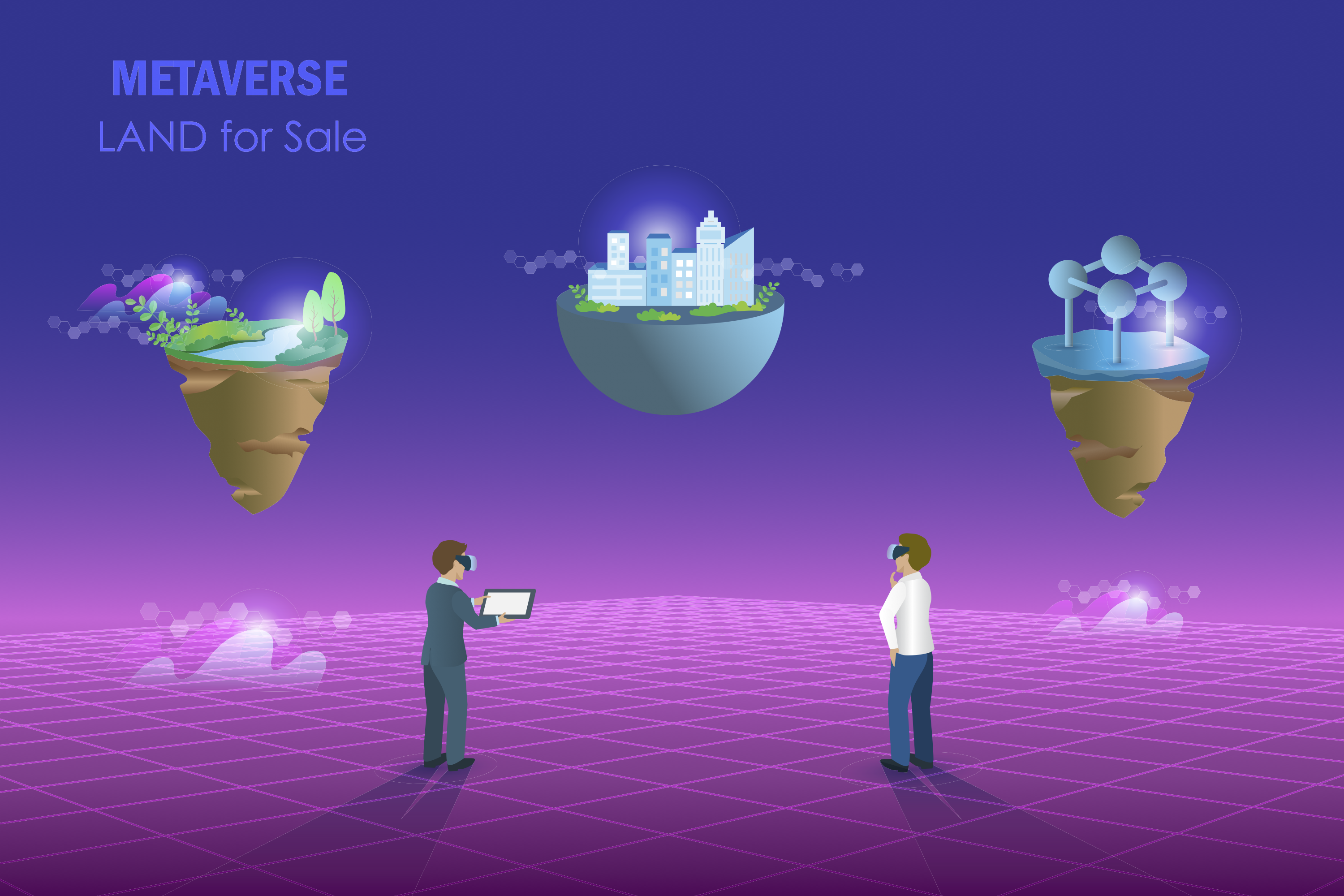by Jake Wengroff
In addition to a booming real estate market here on Earth, there is another booming real estate market: one that is 100% online, in a virtual world, also known as the metaverse. Aside from simply buying virtual real estate, in the metaverse, you can shop, play sports, attend a concert, meet friends at a restaurant and more. Similar to videogames, in these virtual worlds, real people interact as artist-rendered versions of themselves, called avatars.
While virtual worlds have existed for some time now (does anyone remember Second Life?), current plot prices have increased by 500% in the last few months.
Why Now?
Much of this has to do with movements from some of the biggest names in tech, including none other than Facebook, which announced it was going all-in on virtual reality, even changing its corporate name to Meta Platforms. A recent report by crypto asset manager Grayscale, and as reported on CNBC, estimates the digital world may grow into a $1 trillion business in the near future.
Another hot metaverse world is the Sandbox, where Janine Yorio’s virtual real estate development company, Republic Realm, spent a record $4.3 million on a parcel of virtual land. According to CNBC, Yorio’s company sold 100 virtual private islands last year for $15,000 each.
“Today, they’re selling for about $300,000 each,” reports Yorio, “which is coincidentally the same as the average home price in America.”
Buying Virtual Real Estate With Virtual Currency
Real estate investors are purchasing these virtual properties with — you guessed it — virtual currencies, namely cryptocurrencies.
Ownership of the land is recorded in non-fungible tokens (NFTs), or digital identifiers that serve as deeds, also used to record ownership of digital art and collectibles. Sales of property are typically completed in a cryptocurrency specific to that digital landscape within the metaverse.
In addition to buying and selling real estate, investors will also be able to lease residential properties to renters and commercial properties to retailers, restaurateurs and others. These transactions will also occur in the cryptocurrency specific to that digital landscape or universe.
Inherent Risks in the Real Estate Metaverse
Real estate in the metaverse, however, is volatile on multiple levels. While the value of real estate in the real world can plummet based on several factors, it usually takes quite a while for a real estate market to crash, and is based on several factors.
However, in the virtual world, people can stop using a virtual world nearly overnight, rendering the value of a portfolio of digital real estate assets at zero.
Further, cryptocurrencies themselves are volatile. Buying overvalued virtual real estate with overvalued cryptocurrency can be extremely painful not only when the virtual real estate market drops but also when the value of the cryptocurrency drops.
Most virtual real estate can only be purchased with that particular metaverse’s native currency — i.e., there is no “universal” currency in the metaverse. While Bitcoin and other cryptocurrencies are held by investors and companies across the world and used for a range of investment strategies and purposes, a virtual world’s specific currency is only used and held for that particular digital landscape and not outside of it.
What You’ll Need: A Digital Wallet
Purchasing real estate in the metaverse might seem easier — there are no appraisals, inspections, or closing costs — but there are still certain steps you need to take that might incur risk.
You’ll need a digital wallet, such as Fiat or Trezor wallet, in order to purchase the particular cryptocurrency used by the platform you’re interested in. Again, as cited above, each virtual universe has its own currency. For example, Decentraland’s currency, commonly known as MANA, can be used to buy virtual real estate there but not on other platforms like The Sandbox.
Your crypto assets will move between platforms, because your digital wallet will be hosted outside of your particular metaverse but must be connected to your metaverse account before you can get started on buying your virtual real estate.
Some platforms may specify the wallet you have to use; others may be more flexible. In any event, you will be assigned a seed phrase when your wallet is opened. This is similar to your crypto private key: once lost, it is impossible to recover.
Proof of Ownership in an Increasingly Digital Universe
As we’ve mentioned before, wallets, no matter how secure, are still vulnerable to attack. With these new virtual landscapes, there is even more of a threat of attack: cybercriminals know that the platforms are newly developed, so they work to exploit vulnerabilities. The industry needs market-driven solutions that can keep up with the ever-changing world where cryptocurrencies are used to purchase assets.
To step in and support increasingly digital asset classes, TransitNet is creating the industry’s first third-party title registry. Such a ledger demonstrates proof of ownership of crypto assets, adding a layer of protection for investors in digital currencies, NFTs, and other crypto assets.
With TransitNet on your side, you can have greater peace of mind when buying virtual real estate in the metaverse, as you will have an additional measure of ownership should there be misuse or compromise. Join the forefront of the new crypto infrastructure. Request an exclusive registration for TransitNet’s title registry when it launches today.
Jake Wengroff writes about technology and financial services. A former technology reporter for CBS Radio, Jake covers such topics as security, mobility, e-commerce and the Internet of Things.
Sources
CNBC – Investors are paying millions for virtual land in the metaverse
Weston Title & Escrow – Metaverse Real Estate: Here and Now
The MotleyFool.com – How to Buy Land in the Metaverse
The Real Deal – Virtual Real Estate Speculators Notch Another Record Deal
